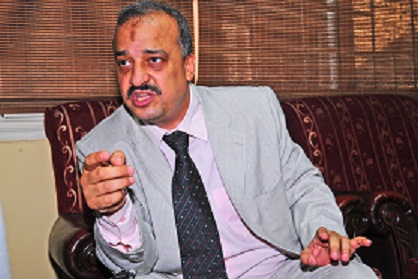CAIRO: Mental patients must be released from psychiatric hospitals when they recover and not remain held in custody for decades, Dr Nasser Loza, secretary general of the Mental Health in Egypt organization, told Daily News Egypt.
Loza’s statement was a reaction to a report published by Al-Badil independent daily about the sudden release of many psychiatric patients from various mental hospitals throughout Egypt.
According to the article, in July Abbaseya mental hospital released 15 percent of its patients, while Misr El Gedidah mental hospital released 41percent, Al-Khankah nine percent, Helwan 22 percent, Port Said 93 percent and 100 percent of patients in Assuit mental hospital were released.
Loza confirmed this data, adding that “this should be the normal procedure as we should all encourage those patients to recover, leave the hospitals and move on with their lives.
According to Loza, a mental patient is like a patient suffering from any other ailment who leaves the hospital once they fully recover.
However Dr Mohamed Rakha, a psychiatrist at Abbaseya mental hospital and member of the Doctors Without Rights movement, told Daily News Egypt that in many cases mental patients remain hospitalized because they are unable to pay outstanding release fees.
“Sometimes patients stay in mental hospitals against their will because they are unable to pay a trifle amount like LE 200 to the hospital administration, Rakha said.
According to Rakha, who has conducted research on the laws governing the mental patients’ rights in Egypt and the world, it’s the patients’ parents who are sometimes the reason why they are left at the hospitals because they refuse to take them home.
“However, even under the current law number 41 of 1944, mental patients have the right to leave the hospital if they want to, he said.
Last week, Daily News Egypt reported that Egypt’s cabinet is discussing changing the law to allow patients suffering from mental and psychological ailments to receive treatment at special departments in public hospitals rather than the overloaded and socially-stigmatized mental hospitals.
According to the draft law, cities around Egypt would boast a national center for psychological health, where judges and government officials would supervise the clinics and ensure that patients receive all their legal rights.
Loza who fully supports the new law, also said that the specialized mental hospitals will still exist to treat mental patients, along with the new national centers and clinics.
Loza recounted the story of a Sudanese mental patient who had spent 20 years in an Egyptian hospital because the supervising doctors diagnosed him as HIV positive and repeatedly refused to release him.
Releasing patients is not an implementation of the new law that is not yet approved by the PA, said Loza, but an “implementation of the basic right of any patient to go back home and continue with life after he recovers from an illness.
